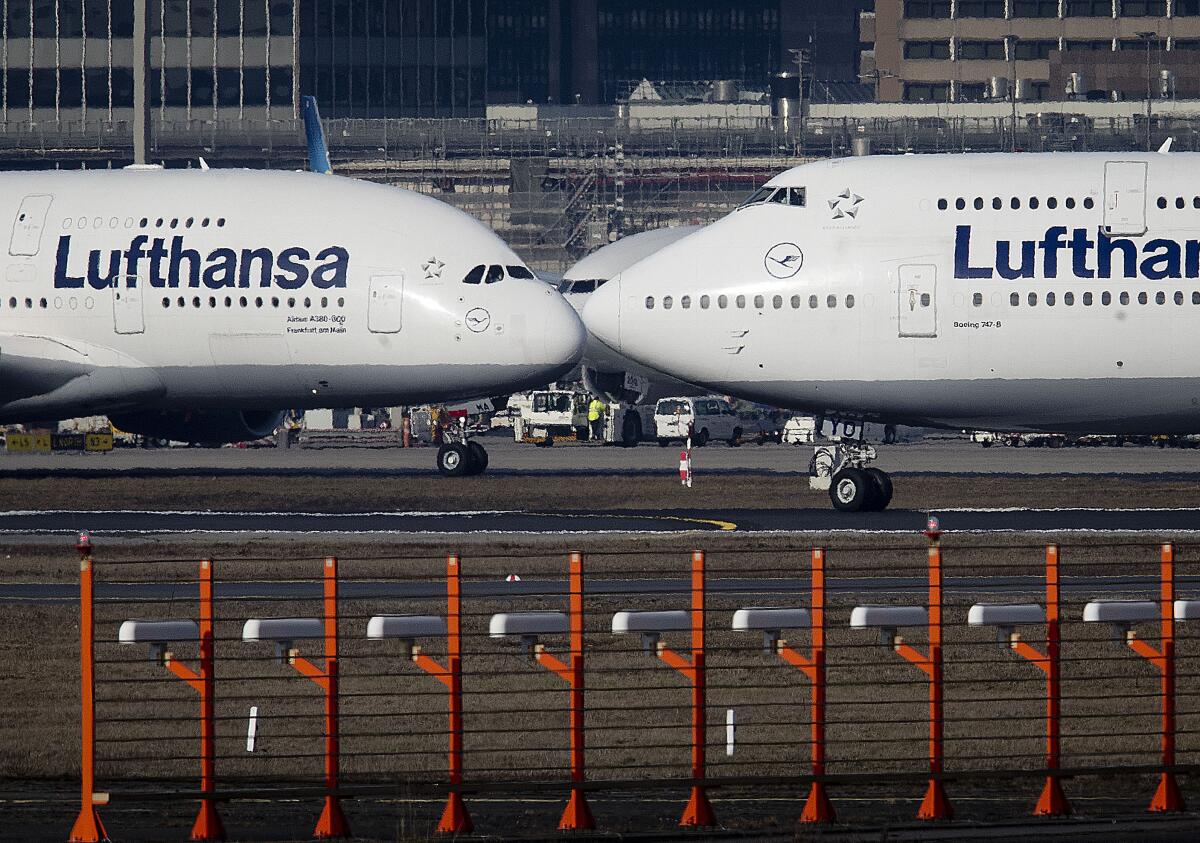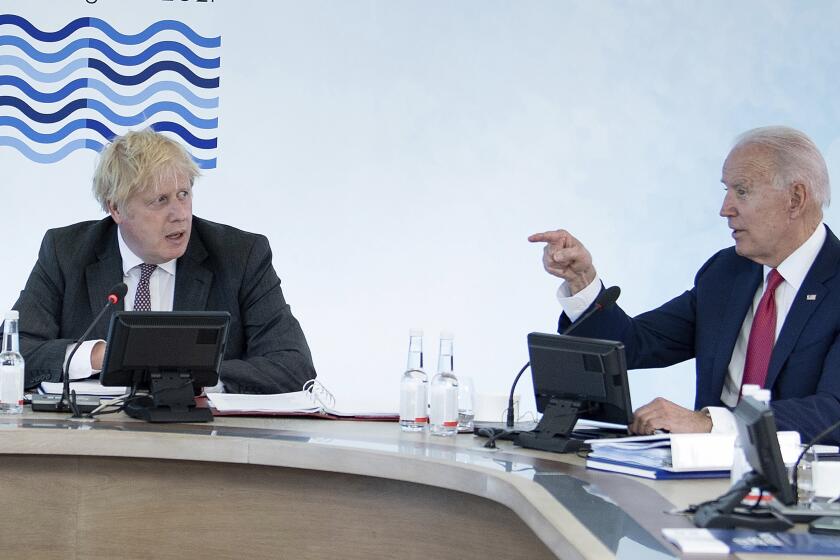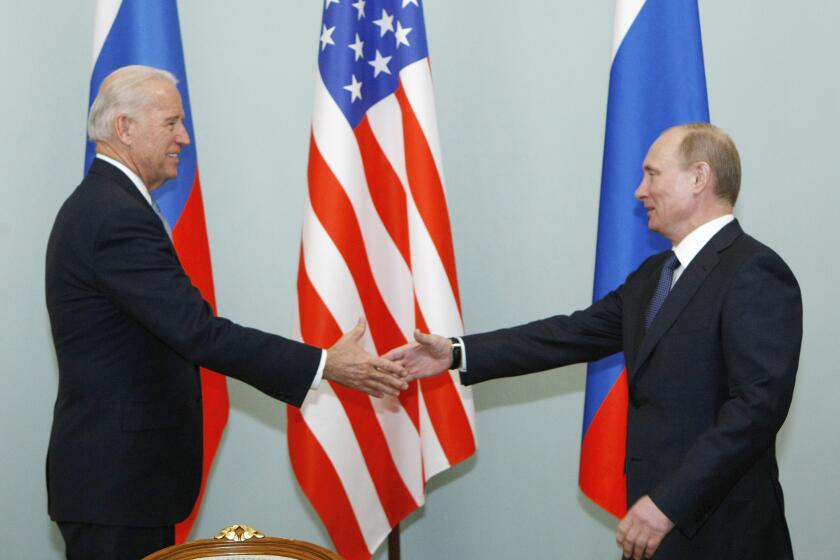U.S. and EU reach deal to end long-running Airbus-Boeing trade dispute

BRUSSELS — The United States and the European Union reached a deal Tuesday to end a damaging dispute over subsidies to rival plane makers Boeing and Airbus and phase out billions of dollars in punitive tariffs, the U.S. trade envoy said.
U.S. Trade Representative Katherine Tai said the two sides had come to terms on a five-year agreement to suspend the tariffs at the center of the dispute. She said they could be re-imposed if the U.S. companies are not able to “compete fairly” with those in Europe.
“Today’s announcement resolves a long-standing irritant in the U.S.-EU relationship,” Tai said, as President Biden met with EU leaders in Brussels. “Instead of fighting with one of our closest allies, we are finally coming together against a common threat.”
The transatlantic trade dispute intensified under the Trump administration and saw tit-for-tat duties slapped on a range of companies that have nothing to do with aircraft production, including French winemakers and German cookie bakers in Europe and spirits producers in the United States, among many others.
The U.S. imposed $7.5 billion in tariffs on European exports in 2019 after the World Trade Organization ruled that the EU had not complied with its rulings on subsidies for Airbus, which is based in France. The EU retaliated last November with $4 billion in punitive duties after the WTO ruled that the U.S. had provided illegal subsidies to Boeing.
In March, weeks after Biden had taken office, the two sides agreed to suspend the tariffs. That suspension started March 11 for four months. The new agreement will officially go into effect July 11.
Group of 7 leaders discuss countering Chinese influence in developing countries. Biden pushes for condemnation of China’s use of forced labor.
“This really opens a new chapter in our relationship because we move from litigation to cooperation on aircraft after 17 years of dispute,” said European Commission President Ursula von der Leyen.
Both sides said they would also work together to analyze and address the “non-market practices of third parties that may harm our large civil aircraft sectors,” according to the EU’s executive branch.
Tai said they would cooperate “to challenge and counter China’s non-market practices in this sector in specific ways that reflect our standards for fair competition. ”
Airbus, which is headquartered in France but also has centers in Germany and Spain, welcomed the agreement.
Biden and Putin agree the nations’ relationship is at a low point before their summit. Trump sends the ex-KGB chief ‘warmest regards.’
“This will provide the basis to create a level playing field which we have advocated for since the start of this dispute. It will also avoid lose-lose tariffs that are only adding to the many challenges that our industry faces,” an Airbus spokesperson said in a statement.
France’s finance and European affairs ministers also hailed the deal.
“We are now going to be able to focus on finally putting these differences behind us, and to define the conditions for fair competition on a global scale to support the aerospace sector, which is strategic for both Europe and the United States,” they said in a joint statement.
Despite the breakthrough, the deal does not entirely end the transatlantic trade row. The Trump administration also slapped duties on EU steel and aluminum. That move enraged European countries, most of them NATO allies, because it was justified as a measure to protect U.S. national security.
The so-called Article 232 proceeding both hurts European producers and raises the cost of steel for American companies. The EU retaliated by raising tariffs on products such as U.S.-made motorcycles, bourbon, peanut butter and jeans.
More to Read
Sign up for Essential California
The most important California stories and recommendations in your inbox every morning.
You may occasionally receive promotional content from the Los Angeles Times.











